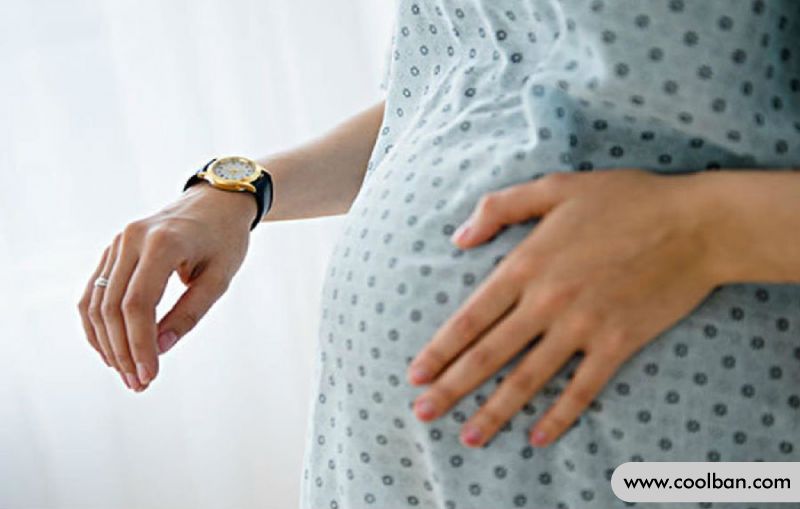What should I do if I don't sleep well in early pregnancy? How to improve
2022-04-08
Sleep in the first trimester is very important. Good sleep quality is beneficial to the healthy growth of the fetus. However, due to the sudden change in the hormones of the expectant mother in the first trimester, this change will trigger various pregnancy reactions, resulting in poor sleep in the first trimester. So, what to do if you don't sleep well in early pregnancy? How to improve the problem of poor sleep in early pregnancy? What is the importance of sleeping position for sleep in early pregnancy? The following is a detailed introduction to the details of sleep in early pregnancy.

What should I do if I don’t sleep well in the first trimester
Poor sleep quality in early pregnancy can seriously affect the growth and development of the fetus in the womb. A study found that pregnant women who slept less than 6 hours before labor had a longer labor process than those who slept more than 7 hours, and the probability of caesarean section was higher. Expectant mothers with small lives in their stomachs are burdened, consume a lot, get tired easily, and need adequate sleep to restore their strength.
Method 1 to improve sleep in the first trimester: Under the premise of ensuring adequate nutrition, the diet should be balanced and light, and avoid overeating or sudden fullness and hunger.
Improve sleep in the first trimester Method 2: Don't be cranky, pay special attention to a regular life, and be sure to relax before going to bed. You can listen to soft and beautiful music, take a walk, exercise properly, and try to sleep when you want to sleep.
Improve sleep in the first trimester Method 3: Go to bed before 10:00 every night and sleep for 8-9 hours, especially from 11:00 pm to 4:00 am the next day, you must ensure The best quality of sleep. It is best to sleep on the left side. If you find it difficult to maintain this sleeping position, have a few pillows on your sides.
Improve sleep in the first trimester Method 4: Drink more water in the morning and reduce the amount of water in the afternoon and evening. Many pregnant women experience frequent urination during the first trimester. For most pregnant women, frequent urination is a must during pregnancy. Drink a glass of milk 2 hours before bed, or eat an apple.

The effect of diet on sleep quality in the first trimester
’s effect on sleep quality in early pregnancy1: Does falling asleep with a full stomach affect the fetus? Normally, pregnancy is easy to starve due to high energy demands. Usually, mothers can eat smaller meals more often, pay attention to nutritional supplements, and do regular obstetric examinations. It is better for the stomach to rest for a while before going to bed after meals.
Effects of on sleep quality in early pregnancy2: The effect of nourishing diet on sleep during pregnancy. During pregnancy, it is generally best to eat less or not longan, because longan is warm, and pregnant women are often prone to yin deficiency and internal heat after pregnancy. Eating longan will cause fever and easily lead to miscarriage. Generally speaking, eating red dates can nourish blood. Some nourishing soups can be taken in moderation, but not too much. Nutrition should be rich and reasonable. Spicy foods like peppers, garlic, and raw onions, as well as greasy, fatty foods can interfere with sleep.
Pay attention to nutrition during pregnancy, but eating too much is not good. Often a nutrient-dense diet may not be absorbed, there is no established theory that eating chicken can cause insomnia, and you can stop taking it if you feel uncomfortable eating. Light nutrition is enough. Pregnant women should have a balanced diet, try to diversify as much as possible, and do not have a partial eclipse.
The effect of on sleep quality in early pregnancy3: Does drinking milk during pregnancy help sleep? Milk helps normal people's sleep, because milk contains an amino acid, which can promote people's mental relaxation, so as to achieve the effect of promoting sleep, but do not drink too much, and do not drink on an empty stomach. If it is insomnia patients, then this effect is very weak.

How to improve Sleep in early pregnancy
The bedroom is quiet, the air is fresh, the room is tidy, and the bedding is spacious and clean, which can promote the mood of sleep in the first trimester
After pregnancy, expectant mothers should choose a quiet bedroom and try to stay away from noisy streets, kitchens and living rooms; expectant mothers should open windows for ventilation one hour before going to bed every day, and close the windows when going to bed to ensure that the indoor air is fresh enough. The room must be neat and orderly, the room does not have to be large, but it must not be cluttered, which will make pregnant women more irritable and affect the quality of sleep in the first trimester; as the fetus grows day by day, if the bed is not big enough, the expectant mother will worry about falling to the ground There is no way to sleep at ease, so the bed for pregnant women should be larger after giving birth; the bedding that expectant mothers usually sleep on should be pure cotton. In order to ensure cleanliness, at least two sets of bedding should be prepared, which should be changed and washed once a week.
Five nos before going to bed, completely relax the mother's psychology and physiology, and help sleep in early pregnancy
Sleep in early pregnancy Improvement method 1: Don't fight at night. Many expectant mothers who are engaged in writing work have the habit of writing manuscripts by lighting a lamp at night, and this habit must be changed after pregnancy. Going to bed late and rushing to work will make the expectant mother maintain mental stress before going to bed and affect the expectant mother to fall asleep;
Sleep in the first trimester Improvement method 2: Do not exercise vigorously. After a woman is pregnant, it is recommended to carry out moderate outdoor activities, but do not do too much housework and do not exercise vigorously, especially at night, because overwork will directly affect sleep in the first trimester;
Sleep in early pregnancy Improvement method 3: Don't eat or drink too much. Pregnant women should set a regular sleep time for themselves, try not to eat two hours before going to bed, especially do not drink coffee, eat spicy food, so as not to cause the brain to be overexcited, thus affecting the quality of sleep in the first trimester.
Sleep in early pregnancy Improvement method 4: Do not watch stimulating movies and TV shows. Some action movies and horror movies are very exciting and can easily cause mood swings in pregnant women. In order to avoid affecting sleep in the first trimester, pregnant women should choose to watch movies and TV dramas that are not easy to cause emotional fluctuations; improvement method 5: Don't talk about troubles. Maternal anxiety is common among expectant mothers during pregnancy, especially in the first trimester, and many pregnant women suffer from insomnia. So try to talk less about troublesome things with pregnant women at night, and talk more about happy and relaxed things.

Recommended sleeping position in early pregnancy
Female pregnancy is generally divided into three periods: the first trimester (1-12 weeks), the second trimester (13-27 weeks) and the third trimester (28-40 weeks). At different stages, sleeping positions are different, taking into account the physiological needs of pregnant women and the development of the fetus. So how should expectant mothers sleep in early pregnancy?
In the early stage of pregnancy, the pregnant mother's belly is not very large, and the common sleeping position is theoretically feasible. But pay attention to some details.
Suggestion 1: Do not sleep on your stomach
Although the belly is not so obvious in the first trimester, sleeping on the stomach will still compress the abdomen, affect the lungs of the pregnant woman, and deprive the fetus of oxygen.
Suggestion 2: You can lie on your back and on your side
It is forbidden to sleep on your stomach in the first trimester, and other sleeping positions are acceptable, such as lying on your back, lying on your side, etc. Pregnant women only need to find the most comfortable sleeping position for themselves, which will not affect the baby.
Suggestion 3: It is best to cultivate the sleeping position on the left side
Experts say that the best sleeping position in early pregnancy is the lateral position, especially the left lateral position. Because the habit is slowly formed in the first trimester, it will be more comfortable in the second and third trimesters. Because this position is the best sleeping position in the second and third trimesters.
Suggestion 4: Avoid sleeping with things in your arms
During pregnancy, expectant mothers should avoid sleeping with objects, especially plush dolls, as their padding and plush may interfere with breathing during sleep.

Lack of sleep in pregnant women can affect fetal development
Impact 1: Reduced mobility of pregnant women increases the risk of harming the fetus
If the mother's lack of sleep affects bodily functions, the health of the fetus will be at risk. For example, if a pregnant woman falls asleep while driving, or stumbles from extreme fatigue, or even falls, the baby may be affected.
Influence 2: Pregnant women have negative emotions, and negative emotions will be passed on to the fetus
Lack of sleep in pregnant women can lead to negative emotions, and the inability to relieve negative emotions often makes mothers nervous and emotionally anxious. If this situation is not resolved in time, with the prolongation of insomnia, it will not only affect the mother's own resistance, but also aggravate their negative emotions. Over time, it will indirectly affect the health of the fetus in the womb.
Influence 3: Adverse reactions lead to abnormal status of the baby after birth
Long-term negative emotions will have adverse reactions to the fetus, and some may have dystocia, or the baby will cry after birth. A study of pregnant women between 18 and 32 weeks of pregnancy found that the children of pregnant women with high levels of depression and anxiety had varying degrees of behavioral and emotional problems around age 4, such as hyperactivity and inability to concentrate, The incidence is 2-3 times that of normal people. In the last month of pregnancy, expectant mothers who slept less than six hours a day were more likely to have a C-section; in the case of natural labor, they were more likely than expectant mothers who slept seven hours or more. Therefore, you should sleep as much as possible during pregnancy.
Therefore, for many women in the first trimester, if they want to know more about the improvement of sleep in the first trimester, they need to have a comprehensive understanding of the above content, so that they can take better care of themselves during pregnancy.

What should I do if I don’t sleep well in the first trimester
Poor sleep quality in early pregnancy can seriously affect the growth and development of the fetus in the womb. A study found that pregnant women who slept less than 6 hours before labor had a longer labor process than those who slept more than 7 hours, and the probability of caesarean section was higher. Expectant mothers with small lives in their stomachs are burdened, consume a lot, get tired easily, and need adequate sleep to restore their strength.
Method 1 to improve sleep in the first trimester: Under the premise of ensuring adequate nutrition, the diet should be balanced and light, and avoid overeating or sudden fullness and hunger.
Improve sleep in the first trimester Method 2: Don't be cranky, pay special attention to a regular life, and be sure to relax before going to bed. You can listen to soft and beautiful music, take a walk, exercise properly, and try to sleep when you want to sleep.
Improve sleep in the first trimester Method 3: Go to bed before 10:00 every night and sleep for 8-9 hours, especially from 11:00 pm to 4:00 am the next day, you must ensure The best quality of sleep. It is best to sleep on the left side. If you find it difficult to maintain this sleeping position, have a few pillows on your sides.
Improve sleep in the first trimester Method 4: Drink more water in the morning and reduce the amount of water in the afternoon and evening. Many pregnant women experience frequent urination during the first trimester. For most pregnant women, frequent urination is a must during pregnancy. Drink a glass of milk 2 hours before bed, or eat an apple.

The effect of diet on sleep quality in the first trimester
’s effect on sleep quality in early pregnancy1: Does falling asleep with a full stomach affect the fetus? Normally, pregnancy is easy to starve due to high energy demands. Usually, mothers can eat smaller meals more often, pay attention to nutritional supplements, and do regular obstetric examinations. It is better for the stomach to rest for a while before going to bed after meals.
Effects of on sleep quality in early pregnancy2: The effect of nourishing diet on sleep during pregnancy. During pregnancy, it is generally best to eat less or not longan, because longan is warm, and pregnant women are often prone to yin deficiency and internal heat after pregnancy. Eating longan will cause fever and easily lead to miscarriage. Generally speaking, eating red dates can nourish blood. Some nourishing soups can be taken in moderation, but not too much. Nutrition should be rich and reasonable. Spicy foods like peppers, garlic, and raw onions, as well as greasy, fatty foods can interfere with sleep.
Pay attention to nutrition during pregnancy, but eating too much is not good. Often a nutrient-dense diet may not be absorbed, there is no established theory that eating chicken can cause insomnia, and you can stop taking it if you feel uncomfortable eating. Light nutrition is enough. Pregnant women should have a balanced diet, try to diversify as much as possible, and do not have a partial eclipse.
The effect of on sleep quality in early pregnancy3: Does drinking milk during pregnancy help sleep? Milk helps normal people's sleep, because milk contains an amino acid, which can promote people's mental relaxation, so as to achieve the effect of promoting sleep, but do not drink too much, and do not drink on an empty stomach. If it is insomnia patients, then this effect is very weak.

How to improve Sleep in early pregnancy
The bedroom is quiet, the air is fresh, the room is tidy, and the bedding is spacious and clean, which can promote the mood of sleep in the first trimester
After pregnancy, expectant mothers should choose a quiet bedroom and try to stay away from noisy streets, kitchens and living rooms; expectant mothers should open windows for ventilation one hour before going to bed every day, and close the windows when going to bed to ensure that the indoor air is fresh enough. The room must be neat and orderly, the room does not have to be large, but it must not be cluttered, which will make pregnant women more irritable and affect the quality of sleep in the first trimester; as the fetus grows day by day, if the bed is not big enough, the expectant mother will worry about falling to the ground There is no way to sleep at ease, so the bed for pregnant women should be larger after giving birth; the bedding that expectant mothers usually sleep on should be pure cotton. In order to ensure cleanliness, at least two sets of bedding should be prepared, which should be changed and washed once a week.
Five nos before going to bed, completely relax the mother's psychology and physiology, and help sleep in early pregnancy
Sleep in early pregnancy Improvement method 1: Don't fight at night. Many expectant mothers who are engaged in writing work have the habit of writing manuscripts by lighting a lamp at night, and this habit must be changed after pregnancy. Going to bed late and rushing to work will make the expectant mother maintain mental stress before going to bed and affect the expectant mother to fall asleep;
Sleep in the first trimester Improvement method 2: Do not exercise vigorously. After a woman is pregnant, it is recommended to carry out moderate outdoor activities, but do not do too much housework and do not exercise vigorously, especially at night, because overwork will directly affect sleep in the first trimester;
Sleep in early pregnancy Improvement method 3: Don't eat or drink too much. Pregnant women should set a regular sleep time for themselves, try not to eat two hours before going to bed, especially do not drink coffee, eat spicy food, so as not to cause the brain to be overexcited, thus affecting the quality of sleep in the first trimester.
Sleep in early pregnancy Improvement method 4: Do not watch stimulating movies and TV shows. Some action movies and horror movies are very exciting and can easily cause mood swings in pregnant women. In order to avoid affecting sleep in the first trimester, pregnant women should choose to watch movies and TV dramas that are not easy to cause emotional fluctuations; improvement method 5: Don't talk about troubles. Maternal anxiety is common among expectant mothers during pregnancy, especially in the first trimester, and many pregnant women suffer from insomnia. So try to talk less about troublesome things with pregnant women at night, and talk more about happy and relaxed things.

Recommended sleeping position in early pregnancy
Female pregnancy is generally divided into three periods: the first trimester (1-12 weeks), the second trimester (13-27 weeks) and the third trimester (28-40 weeks). At different stages, sleeping positions are different, taking into account the physiological needs of pregnant women and the development of the fetus. So how should expectant mothers sleep in early pregnancy?
In the early stage of pregnancy, the pregnant mother's belly is not very large, and the common sleeping position is theoretically feasible. But pay attention to some details.
Suggestion 1: Do not sleep on your stomach
Although the belly is not so obvious in the first trimester, sleeping on the stomach will still compress the abdomen, affect the lungs of the pregnant woman, and deprive the fetus of oxygen.
Suggestion 2: You can lie on your back and on your side
It is forbidden to sleep on your stomach in the first trimester, and other sleeping positions are acceptable, such as lying on your back, lying on your side, etc. Pregnant women only need to find the most comfortable sleeping position for themselves, which will not affect the baby.
Suggestion 3: It is best to cultivate the sleeping position on the left side
Experts say that the best sleeping position in early pregnancy is the lateral position, especially the left lateral position. Because the habit is slowly formed in the first trimester, it will be more comfortable in the second and third trimesters. Because this position is the best sleeping position in the second and third trimesters.
Suggestion 4: Avoid sleeping with things in your arms
During pregnancy, expectant mothers should avoid sleeping with objects, especially plush dolls, as their padding and plush may interfere with breathing during sleep.

Lack of sleep in pregnant women can affect fetal development
Impact 1: Reduced mobility of pregnant women increases the risk of harming the fetus
If the mother's lack of sleep affects bodily functions, the health of the fetus will be at risk. For example, if a pregnant woman falls asleep while driving, or stumbles from extreme fatigue, or even falls, the baby may be affected.
Influence 2: Pregnant women have negative emotions, and negative emotions will be passed on to the fetus
Lack of sleep in pregnant women can lead to negative emotions, and the inability to relieve negative emotions often makes mothers nervous and emotionally anxious. If this situation is not resolved in time, with the prolongation of insomnia, it will not only affect the mother's own resistance, but also aggravate their negative emotions. Over time, it will indirectly affect the health of the fetus in the womb.
Influence 3: Adverse reactions lead to abnormal status of the baby after birth
Long-term negative emotions will have adverse reactions to the fetus, and some may have dystocia, or the baby will cry after birth. A study of pregnant women between 18 and 32 weeks of pregnancy found that the children of pregnant women with high levels of depression and anxiety had varying degrees of behavioral and emotional problems around age 4, such as hyperactivity and inability to concentrate, The incidence is 2-3 times that of normal people. In the last month of pregnancy, expectant mothers who slept less than six hours a day were more likely to have a C-section; in the case of natural labor, they were more likely than expectant mothers who slept seven hours or more. Therefore, you should sleep as much as possible during pregnancy.
Therefore, for many women in the first trimester, if they want to know more about the improvement of sleep in the first trimester, they need to have a comprehensive understanding of the above content, so that they can take better care of themselves during pregnancy.
